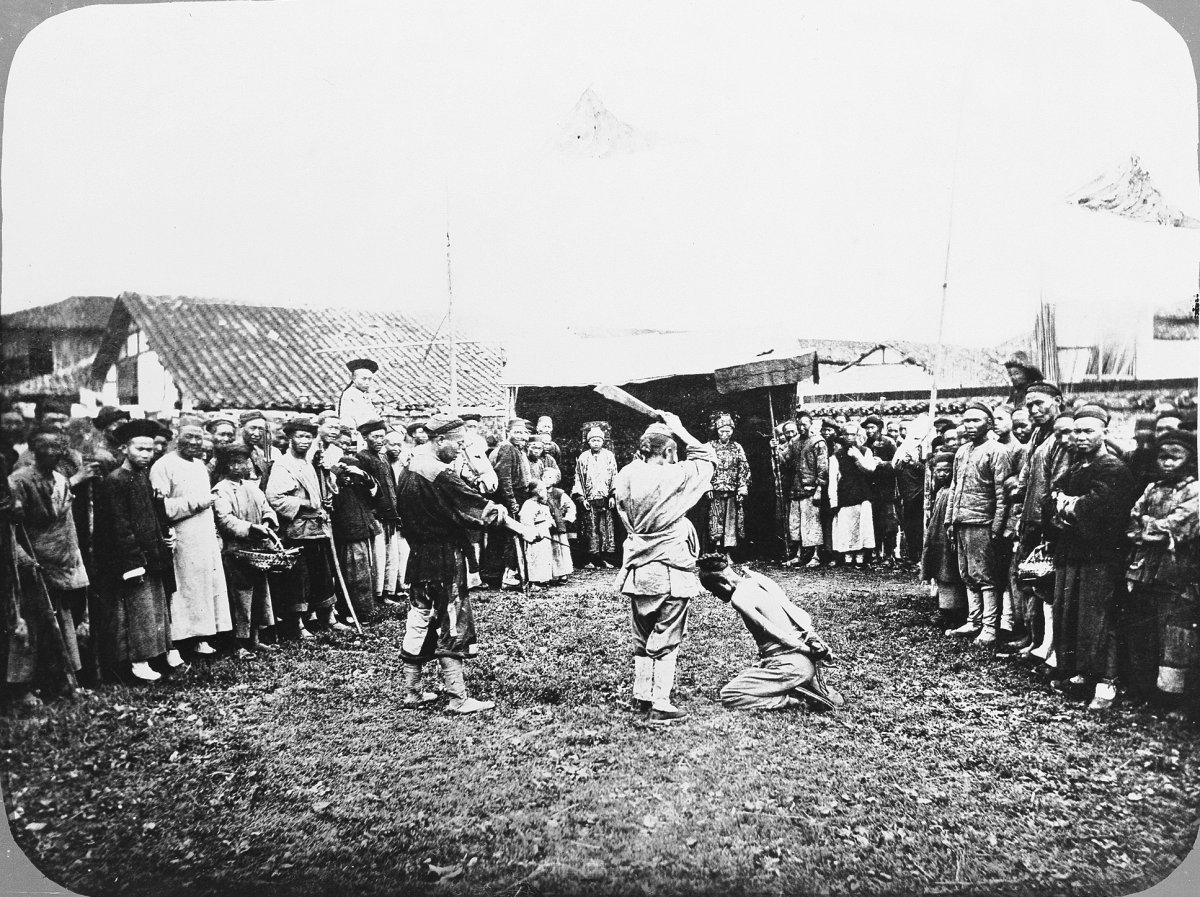...was a failed 104-day cultural, political and educational reform movement in 1898, undertaken by the young Guangxu Emperor and his reform-minded supporters. The movement proved to be short-lived, ending in a coup d'état led by Empress Dowager Cixi.
Beginning
Guangxu ordered a series of reforms aimed at making sweeping social and institutional changes in response to weaknesses exposed by China's defeat by Japan, which had been regarded as a tributary state. Moreover, the defeat of China by Japan led to a scramble for 'privileges' in China by other foreign powers, notably the German Empire and Russia, further awakening the stubborn conservatives. Before the First Sino-Japanese War, China engaged in technological modernization only, buying modern weapons, ships, artillery, and building modern arsenals to produce these weapons, without making any institutional reforms, and refusing to reform according to western standards, as Japan had done.
Under the influence of reformers Kang Youwei and Liang Qichao, Guangxu believed that by learning from constitutional monarchies like Japan and Germany, China would become more powerful politically and economically, and would be able to resist European imperialists. With the help of certain senior officials of the Qing court, who were supporters of reform, Kang Youwei was permitted to speak with the Emperor, and his suggestions were enacted. Some of Kang's students were also given minor but strategic posts in the capital to assist with the reforms. Some essential preconditions of reform were: modernizing the traditional exam system, elimination of sinecures, creation of a modern education system (studying math and science instead of focusing mainly on Confucian texts, etc.), changing the government from absolute monarchy to constitutional monarchy with democracy, applying principles of capitalism to strengthen the economy, reorganizing the military, and industrializing all of China through manufacturing, commerce, and capitalism.
The reformers declared that China needed more than "self-strengthening" and that innovation must be accompanied by institutional and ideological change. For a brief time, after the supposed retirement of the Empress Dowager Cixi, the Guangxu Emperor issued edicts for a massive number of far-reaching modernizing reforms. Conservatives like the xenophobic Prince Duan opposed the reformers, suspecting foreigners were behind the plot.
End
The reforms, however, were too sudden for a China still under significant neo-Confucian influence, and displeased Cixi as they served as a serious check on her power. Some government and military officials warned Cixi of suspected Japanese influence within the reform movement, including a suspicious visit from Japanese Prime Minister Ito Hirobumi, and led Empress Dowager Cixi to resume the role of regent and once again take control of the country.

Opposition to the reform was intense among the conservative ruling elite, who, condemning the announced reforms as too radical, proposed instead a more moderate and gradualist course of change. The privileged classes of Chinese society were threatened by the attacks on corruption, the army, and the traditional educational system. When Guangxu appointed two foreigners to his advisory council, conservatives feared a Qing government controlled by foreigners. With the tacit support of the political opportunist Yuan Shikai and the backing of conservatives, Empress Dowager Cixi engineered a coup d'état on September 21, 1898, forcing the young, reform-minded Guangxu into seclusion. The Guangxu Emperor was taken to Ocean Terrace, a small palace on an island in the middle of Zhongnanhai linked to the rest of the Forbidden City only by a controlled causeway. Empress Dowager Cixi followed with an edict dictating the Guangxu Emperor's total disgrace and "not being fit to be Emperor." The Guangxu Emperor's reign had effectively come to an end. Until his death in 1908 Cixi held power as regent. The Hundred Days' Reform ended with the rescinding of the new edicts and the execution of six of the reform's chief advocates. Guangxu’s supporters, including his former tutor Weng Tonghe, who had recommended Kang Youwei, were exiled. The two principal leaders, Kang Youwei and his student Liang Qichao, fled to Japan to found the Baohuang Hui (Protect the Emperor Society) and to work, unsuccessfully, for a constitutional monarchy in China.
Aftermath
The court put into effect some reform measures a decade later. These included the abolition of the Imperial Examination in 1905, educational and military modernization patterned after the model of Japan, and an experiment in constitutional and parliamentary government. The suddenness and ambitiousness of the reform effort actually hindered its success. One effect, to be felt for decades to come, was the establishment of the New Army, which, in turn, gave rise to warlordism.
On the other hand, the failure of the reform movement gave great impetus to revolutionary forces within China. Changes within the establishment were seen to be largely hopeless, and the overthrow of the whole Qing government increasingly appeared to be the only viable way to save China. Such sentiments directly contributed to the success of the Chinese Revolution in 1911.